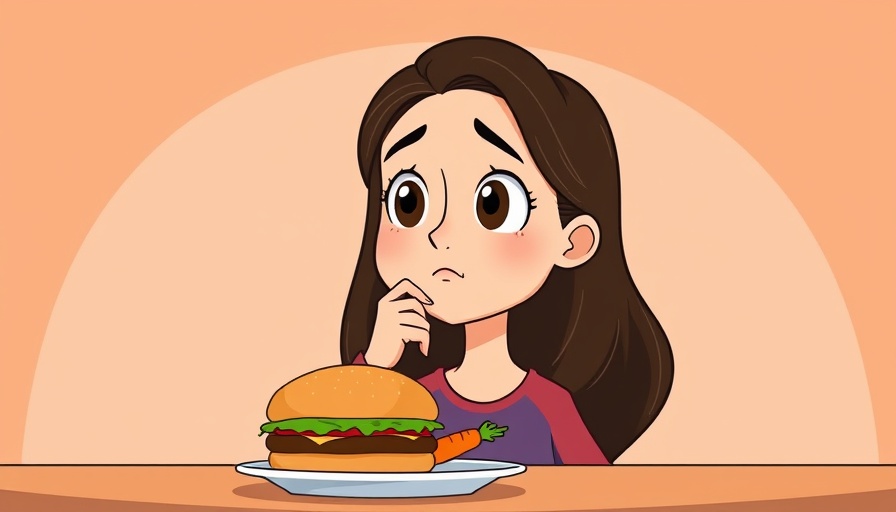
Why We Equate Food Choices with Morality
Food has long been a source of comfort and connection, yet in a society where healthy eating practices are often intertwined with moral values, our relationship with food can quickly turn toxic. The idea that certain foods are "good" and others are "bad" fosters an environment of shame, leading many to micromanage their diets in search of approval and safety.
The Psychological Toll of the Pursuit of Perfection
As the original narrative highlights, many people equate being "good" with adhering to strict dietary rules and maintaining a particular body image. However, this quest for perfection is not only unrealistic but also detrimental to mental well-being. Individuals often internalize feelings of failure when they deviate from their self-imposed diet standards, perpetuating a cycle of guilt that can lead to eating disorders.
Breaking the Cycle: The Importance of Self-Compassion
Understanding that our worth is not tied to our food choices is a critical first step in healing our relationship with food. Embracing self-compassion allows us to acknowledge our cravings and needs without judgment. This journey towards intuitive eating encourages individuals to tune into their bodies, recognize hunger cues, and enjoy food as a nourishing part of life rather than a battleground.
Practical Tips for Mindful Eating
To cultivate a healthier mindset around food, consider incorporating these practical strategies into your daily routine:
- Practice Mindfulness: Engage in mindful eating by taking the time to savor and appreciate each meal, paying attention to flavors and textures.
- Redefine "Health": Shift your understanding of health from a narrow focus on weight and diet to a broader perspective that includes mental, emotional, and social well-being.
- Allow Flexibility: Embrace the notion that food can be both nourishing and enjoyable. Allow yourself to indulge without guilt; it’s an essential part of a balanced life.
The Road Back to Joy: Recovering from Food Obsession
Recovery from disordered eating and the pervasive diet culture takes time and patience. Consider seeking support from friends, family, or professional help. As the author unveils through her personal narrative, understanding one’s own history with food can illuminate patterns that need addressing for a healthier future.
Final Thoughts: Embrace Your Journey
The journey towards building a positive relationship with food is deeply personal and empowering. It invites us to learn more about ourselves while fostering resilience and hope. Remember, you are more than your food choices; it’s time to redefine what it means to be "good"—embracing the fullness of life.
In a world inundated with dietary rules and moral judgments about food, it’s vital to reclaim your narrative. Start embracing a holistic view of wellness that includes kindness to yourself.
 Add Row
Add Row  Add
Add 



 Add Row
Add Row  Add
Add 

Write A Comment